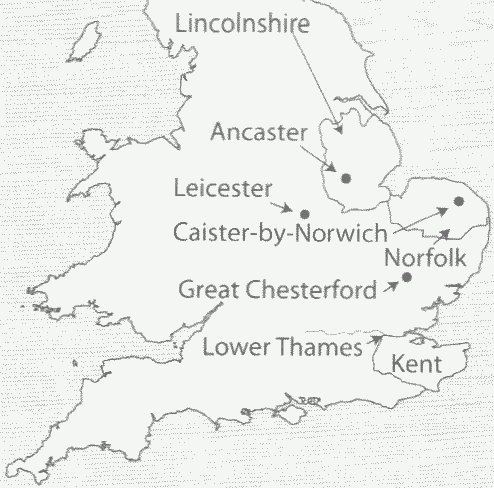西ゲルマン語派の諸民族が5世紀にブリテン島へ侵略した経緯については,歴史学や考古学において様々な調査と検証が行なわれてきた.その議論の1つということで挙げようと思うが,英語史概説書を著わした Gramley (14--15) が,"The Germanic migrations" と題する節で,アングル人は "push-factors" により,サクソン人は "pull-factors" によりブリテン島へやってきたという議論を紹介している.以下に引用する.
In ancient times the peoples of Europe periodically moved from their homelands to new territories. Just why they migrated is a matter of conjecture and surely differed from case to case . . . . The major reason mooted is overpopulation, which led smaller groupings (rarely if ever a whole people) to move off to find sufficient land to settle on. On occasion pressure came from outside invaders such as the Huns, who pushed various peoples further to the west and caused them to try to find lands in the Roman Empire. Drought or other natural catastrophes might also have forced groups to pull up stakes and look for (literally) greener pastures. All of these points might be understood collectively as push-factors. The migration of the Angles to Kent was probably such a case since it seems that whole clans moved. . . . Pull factors . . . are also often seen as motivation for migration. Raids by bands of young warriors, perhaps younger sons without land, seem to have been quite frequent. While many of them were just that, raids, from which the men returned home with booty of all sorts, on other occasions, they settled in the areas invaded and, after removing the male competitors they had defeated, took the indigenous women as wives. This may apply to the Saxons, whose pattern of settlement in the English Midlands with small and equal allotments suggests a well-regulated system of distributing spoils. Furthermore, since the Saxons practiced primogeniture, smaller allotments would suffice, while the larger ones in Kent suggest more the Angles' system of gavelkind . . . . / Other pull-factors may be found in the changing structure of Germanic society under the influence of Roman expansion and Roman culture. The Roman Empire represented a high standard of living with well-established associations of power and prestige. In the case of England, even after the withdrawal of the Roman legionnaires there would have been no abrupt change.
ちなみに上記引用内で前提とされているように,Gramley (17) はケントを襲った主たる侵略者は,伝統的なジュート人というよりは,むしろアングル人であるという見解を採用している.
なお,伝説によれば,449年頃に Angles, Saxons, Jutes, Frisians の諸民族がブリテン島に侵入したことになっているが,考古学的な証拠によれば,西ゲルマン諸民族はそれに先立つ5世紀初頭には確実にブリテン島に居住していた.Gramley (16) は,"Pre-Conquest Germanic cemeteries" と題する略地図を以下のように与えている.

本記事で扱った内容と関連して,Gramley の英語史概説書のコンパニオンサイトより,Chapter 1: The Origins of English (PDF) (p. 23) に追加的な解説があるので,参照されたい.また,本ブログ中から「#33. ジュート人の名誉のために」 ([2009-05-31-1]),「#389. Angles, Saxons, and Jutes の故地と移住先」 ([2010-05-21-1]),「#1013. アングロサクソン人はどこからブリテン島へ渡ったか」 ([2012-02-04-1]),「#2353. なぜアングロサクソン人はイングランドをかくも素早く征服し得たのか」 ([2015-10-06-1]) の記事も要参照.
・ Gramley, Stephan. The History of English: An Introduction. Abingdon: Routledge, 2012.